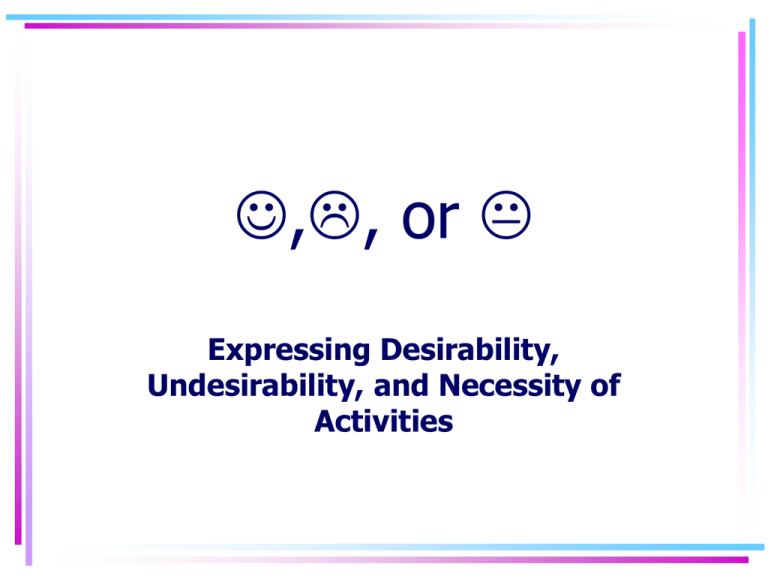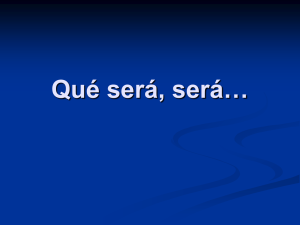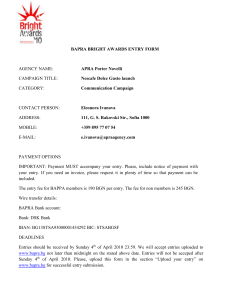Does Childcare Provision Increase Women`s Earnings? Evidence
advertisement

,, or Expressing Desirability, Undesirability, and Necessity of Activities Modal verbs--1 • In Filipino, modal verbs gusto (like to, want to), ayaw (don’t want to, refuse to), and kailangan (need to, have to, must) are not conjugable – Gusto kong kumain ng pancit kahapon. – Gusto kong kumain ng pancit ngayon. – Ayaw kong uminom ng gamot mamaya. – Kailangan kong uminon ng gamot arawaraw. Modal verbs--2 • They do not require any ang marker to form a sentence. When the verb is an actor-focus, both actor and direct object phrases are marked by ng. – Kailangan ng bata gumawa ng homework niya. Modal verbs--3 • When modal verbs are used, the main verbs stay in the infinitive – Gusto kong mag-Filipino. Sentence pattern Modal NG + verb + Gusto Actor Ayaw (who) Kailangan Main NG+ verb+ -um, Object mag-, (what) ma(infinitive) SA/NANG / etc. Direction (to/from/ location/ place) or adverb (where, when) Examples – Gusto kong sumayaw sa disco. – Ayaw kong magmaneho ng kotse sa siyudad. – Kailangan kong tumawag sa embassy. Exercise 1: James and his friend are planning a weekend trip to Pagsanjan, Laguna. Legend: • : Gusto • : Ayaw • : Kailangan Use: gusto, ayaw, kailangan James Kaibigan niya Ikaw Bakasyon, Pagsanjan, Laguna ? Paligo, mainit na sibol ? Sakay, bangka ? Salita, Filipino ? Use: gusto, ayaw, kailangan Bisita, kaibigan Bili, buko pie Balik, siyudad Pasok, trabaho James Kaibigan niya Ikaw ? ? ? ? Exercise 2 (individual) Write what you like, don’t like, or need to do punta sulat luto plantsa tulog kanta kain linis aral tuto sayaw inom laba laro upo tugtog bili maneho trabajo una • Exercise 3. Work in pairs. Find out what your partner likes to do. Use the words in Exercise 2. • Exercise 4. Tell the group what your partner likes to do.









